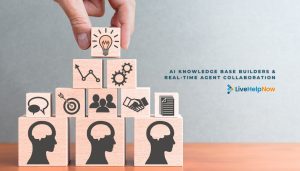Artificial intelligence is revolutionizing various industries, and customer service is no exception. With its ability to analyze data, understand natural language, and make informed decisions, AI has become a valuable tool for businesses looking to enhance their customer service experience. In this article, we will explore the numerous benefits of AI in customer service, from automating repetitive tasks to improving customer interactions and eliminating human errors.
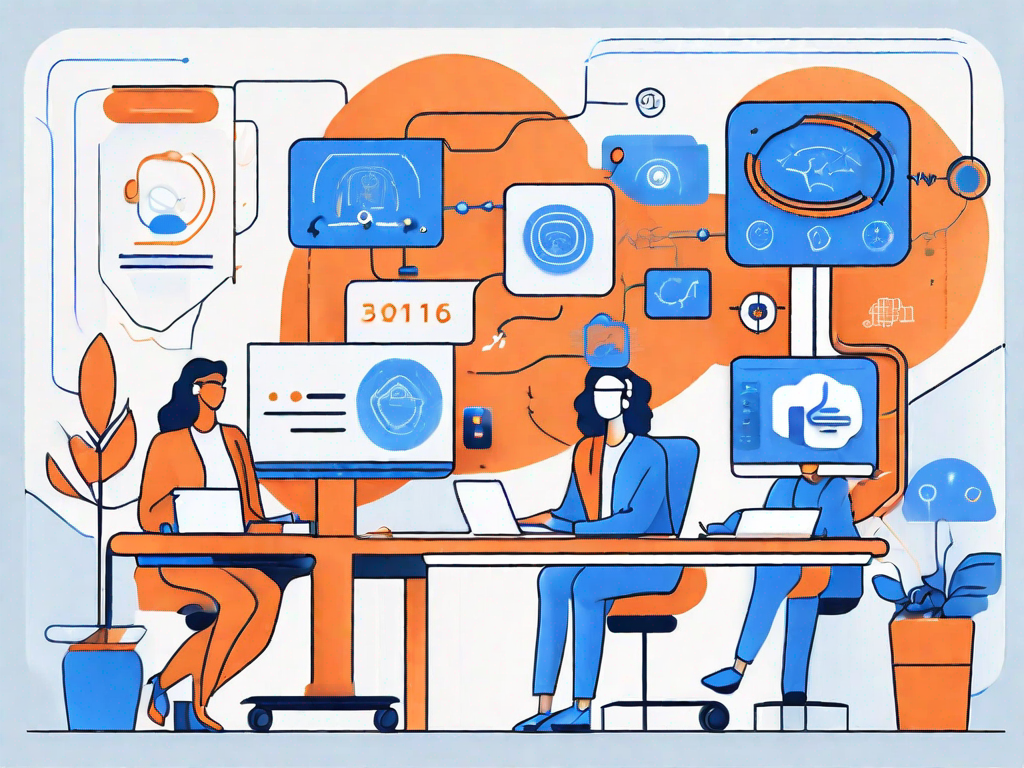
Automated Repetitive Customer Service Tasks Fight Monotony
One of the key advantages of using AI in customer service is its ability to automate repetitive tasks. Traditionally, agents have had to handle a multitude of repetitive inquiries, such as password resets or order tracking. This not only consumes valuable time but can also lead to errors due to the monotony involved. By implementing AI-powered systems, businesses can automate these mundane tasks, freeing up agents to focus on more complex issues.
Imagine a customer service agent who spends hours each day resetting passwords for customers who have forgotten them. This repetitive task can quickly become tedious and mind-numbing. However, with the introduction of AI, this agent can now rely on a password reset bot to handle these requests. The bot is programmed to securely verify the customer’s identity and generate a new password, eliminating the need for human intervention. This not only saves time but also reduces the risk of human error in the password reset process.
AI systems are also capable of handling a large volume of tasks simultaneously, ensuring efficient and timely responses to customer inquiries. For example, imagine a scenario where a company receives a sudden surge in customer inquiries due to a product recall. Without AI, the customer service team would struggle to handle the influx of calls and emails, leading to long wait times and frustrated customers. However, with AI-powered chatbots, the system can handle multiple inquiries simultaneously, providing prompt and accurate responses to each customer. This not only reduces customer wait times but also improves the overall efficiency of the customer service department.
AI Frees Customer Service Agents for More Complex Tasks
By automating repetitive tasks and utilizing AI-powered chatbots, businesses can free up their customer service agents to focus on more complex issues and provide exceptional support where it truly matters. This not only improves the efficiency of the customer service department but allows agents to use their expertise to handle intricate problems and provide personalized assistance that AI systems may not be able to replicate.
By offloading routine tasks to AI systems, customer service agents can spend more time building relationships with customers, understanding their unique needs, and finding innovative solutions. This human touch is invaluable in creating customer loyalty and differentiating a business from its competitors.
AI Collects and Analyzes Customer Feedback
Customer feedback is an important part of any business. Through machine learning algorithms, AI systems can analyze customer interactions and feedback to identify areas for improvement. For example, if a chatbot consistently fails to provide satisfactory answers to certain types of inquiries, the AI system can be updated to address those specific issues. This iterative process ensures that the AI system becomes more intelligent and effective over time, leading to enhanced customer satisfaction.
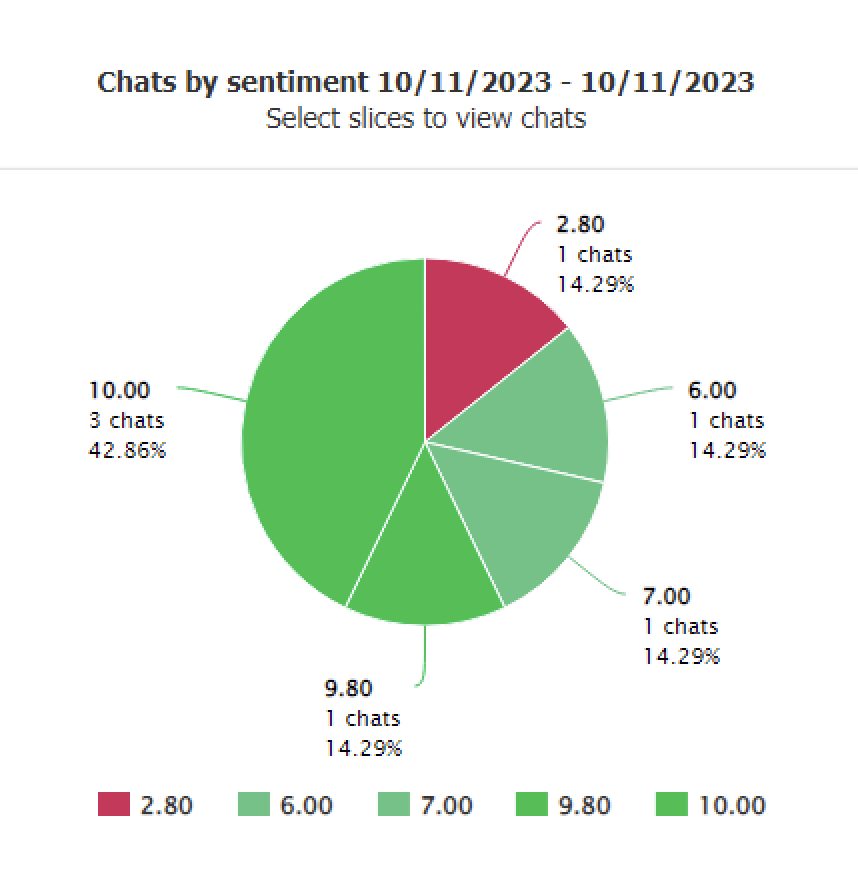
Traditional customer service requires tools such as post-interaction surveys or other ways to collect feedback. AI eliminates the need for customers to answer questions. It can automatically detect the sentiment, intent, and outcome of specific customer inquiries.
AI-driven Customer Service Analytics Provide Insights
In addition to feedback on customer inquiry resolution rates, AI tools bring detailed analytics to the table. Traditional customer service processes require agents to determine custom inquiry intends, trends, and outcomes. These manual actions took up agents’ time to categorize customer interaction, categorize inquiries, and determine and apply macros (additional actions for any given query.)
With AI all that could be avoided. Accurate analytics are now at the agents’ fingertips as AI tags, categorizes, determines the intent, and plans further actions as needed.
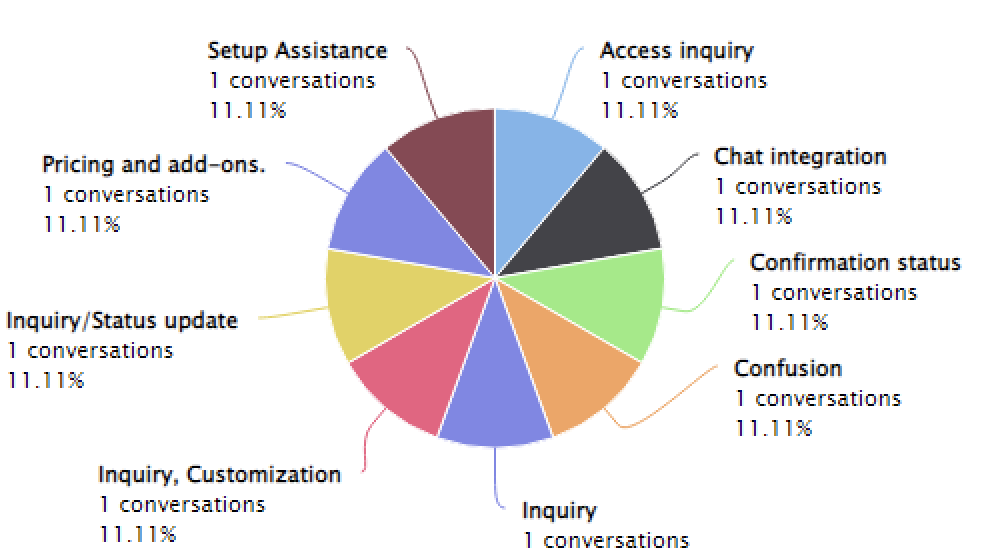
With these advanced analytics capabilities, businesses can gain valuable insights into customer preferences, grievances, and patterns. This data can be harnessed to identify areas of improvement and implement targeted strategies to enhance customer satisfaction.
One of the key benefits of AI-driven customer service analytics, enhanced by AI development services, is the ability to uncover hidden patterns and correlations within vast amounts of data. AI algorithms can quickly process large volumes of data and identify meaningful insights that may have otherwise gone unnoticed. Have shared your request upon getting an update will notify you.
For example, imagine a scenario where a business receives hundreds of customer complaints about a specific product. Without AI-driven analytics, it would be challenging to identify the root cause of these complaints. However, with the help of AI algorithms, businesses can quickly identify common themes or issues within the complaints, such as faulty components or a confusing user interface.
Personalization of Customer Experience
AI-driven customer service analytics can also help businesses personalize their interactions with customers. By analyzing past customer interactions and preferences, AI algorithms can provide businesses with valuable information about each customer’s needs and preferences.
For instance, if a customer has previously expressed a preference for a specific type of product or service, AI algorithms can use this information to tailor future recommendations and offers. This level of personalization can significantly enhance the customer experience and increase the likelihood of repeat business.
Another advantage of AI-driven customer service analytics is the ability to predict customer behavior and anticipate their needs. By analyzing historical customer data and patterns, AI algorithms can identify trends and make predictions about future customer behavior.
For example, if a business notices that a significant number of customers tend to purchase a particular product during a specific time of year, AI algorithms can anticipate this behavior and help businesses prepare accordingly. This could involve stocking up on inventory, offering targeted promotions, or adjusting staffing levels to meet increased demand.
AI-powered Chatbots Improve the Quality Customer Service
Faster Response Times
Gone are the days of frustrating hold times and never-ending queues. AI-powered chatbots have transformed the way businesses communicate with their customers. These virtual assistants are capable of understanding and responding to customer queries in a conversational manner, offering personalized assistance around the clock.
Chatbots equipped with natural language processing capabilities can accurately understand the intent behind customer messages, enabling them to provide relevant and helpful responses. Businesses that combine AI tools with professional virtual assistant services can further enhance customer interactions—ensuring timely responses, better personalization, and round-the-clock support. Whether it’s answering frequently asked questions or providing product recommendations, AI-powered chatbots deliver instant and accurate information, enhancing the overall customer experience.
Large Volume of Inquiries Resolved
One of the key advantages of AI-powered chatbots is their ability to handle a large volume of customer inquiries simultaneously. Unlike human agents, chatbots can engage in multiple conversations at once. That ensures that no customer is left waiting for a response. This not only improves customer satisfaction but also increases operational efficiency for businesses.
Continuous Improvement
Moreover, AI-powered chatbots continuously learn and improve over time. By analyzing customer interactions and feedback, these chatbots can identify patterns and trends, allowing them to provide even more accurate and personalized responses. This adaptive learning capability ensures that chatbots stay up-to-date with the latest information and can adapt to changing customer needs. As AI technology continues to advance, chatbots are becoming increasingly sophisticated. They can now handle complex conversations and provide nuanced responses.
Round-the-Clock Availability
Another benefit of AI-powered chatbots is their availability 24/7. Customers no longer have to wait for business hours to get their questions answered. Whether it’s late at night or during weekends, chatbots are always ready to assist. This round-the-clock availability not only improves customer satisfaction but also helps businesses capture potential leads and sales opportunities that may arise outside regular working hours.
Integrations
Furthermore, AI-powered chatbots can be integrated with other systems and platforms, such as customer relationship management (CRM) software and e-commerce platforms. This integration allows chatbots to access customer data and transaction history, enabling them to provide personalized recommendations and tailored assistance. By leveraging customer information, chatbots can offer a more personalized and seamless experience, making customers feel valued and understood.
Hue: LiveHelpNow’s ChatGPT-Powered AI Tool
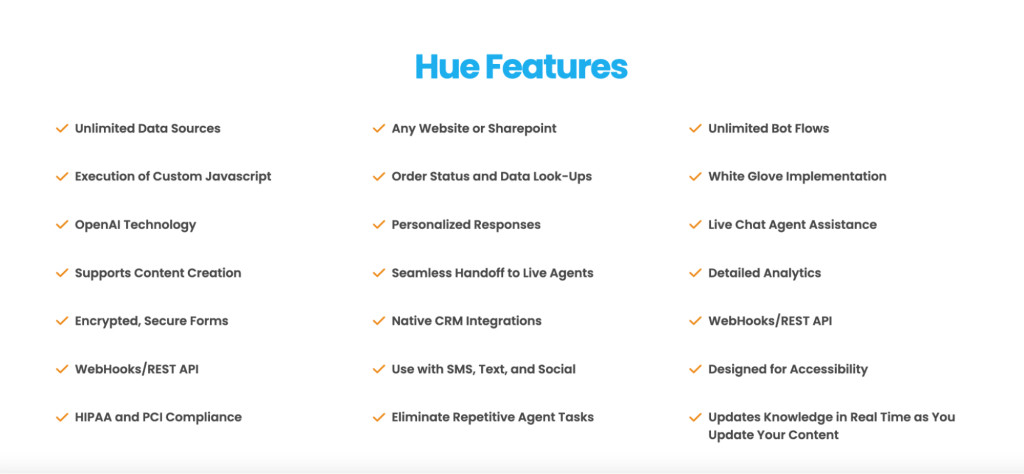
Hue, powered by ChatGPT, sources answers to customer questions by using your data like chat transcripts, knowledge base, website data, internal documents, and more. This ensures lightning-fast and accurate responses without aid from human agents. This tool power-ups customer service efforts with fast and efficient replies to a wide range of custom inquiries.
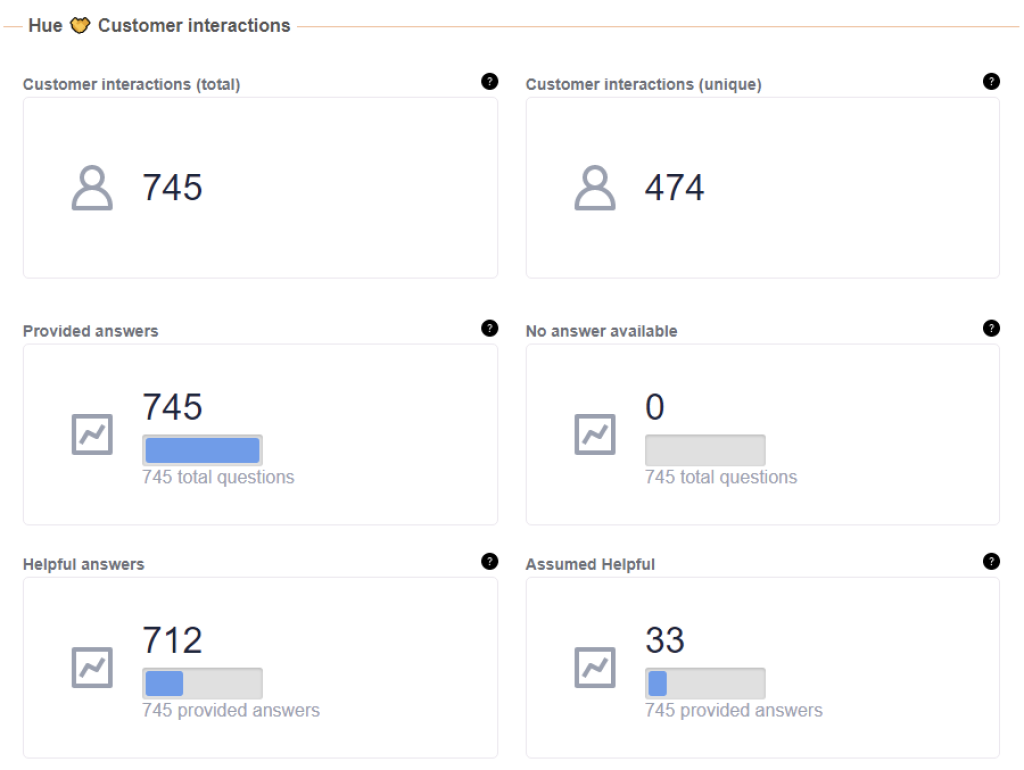
Eliminate Human Mistakes with AI
Humans are prone to errors, and customer service is no exception. Miscommunications, incorrect information, or oversights can lead to customer dissatisfaction. However, with AI in place, businesses can significantly reduce the occurrence of human mistakes.
AI-powered systems ensure consistent and accurate responses, minimizing the risk of miscommunication or misinformation. Whether it’s providing standardized answers to common queries or ensuring compliance with company policies, AI eliminates human errors that can negatively impact the customer experience.
As an example, LiveHelpeNow’s Hue offers an agent-assist feature. The tool can provide expanded responses to customers’ questions. It can also recommend the most accurate answers, and eliminate grammatical and tactical errors within agent operations.
Benefits of AI in Customer Service
In conclusion, the benefits of AI in customer service are vast. From automating repetitive tasks and improving response times to enhancing the overall customer experience and reducing errors, AI has revolutionized how businesses interact with their customers. By leveraging the power of AI, businesses can provide efficient, personalized, and proactive customer service. That leads to increased customer satisfaction and long-term loyalty. Using best AI practices when implementing artificial intelligence in customer service operations can help ensure seamless integration and effective implementation.
